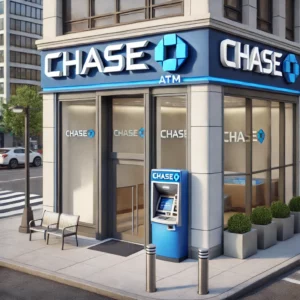Social Media-Fueled Banking Scheme Leads to Major Legal Action
In a significant development highlighting the intersection of social media trends and financial fraud, JPMorgan Chase has launched legal action against individuals who allegedly exploited a banking system vulnerability. The case demonstrates how viral social media content can rapidly transform isolated technical oversights into widespread financial exploitation schemes, leading to substantial losses for major financial institutions.
5 Key Points
- JPMorgan Chase files lawsuits against four individuals in three states.
- Defendants allegedly owe $661,000 from fraudulent check deposits.
- The highest individual amount claimed is $290,939 from the Texas defendant.
- The scheme gained popularity through viral TikTok videos.
- Check fraud incidents increased by 90% between 2021 and 2023.
TikTok-Driven Scheme Exposes ATM Verification Weakness
The exploitation centered around a critical flaw in Chase’s ATM check verification process that gained widespread attention through social media platforms. Participants discovered they could deposit self-written checks for amounts exceeding their account balances, with funds becoming immediately available before proper verification. The vulnerability created a temporary window where individuals could withdraw or transfer money without sufficient funds to cover the transactions. This oversight, amplified by viral TikTok videos, transformed into a widespread phenomenon that attracted numerous participants seeking to exploit the system’s weakness.
Multi-State Legal Pursuit Targets Major Offenders
JPMorgan’s legal strategy focuses on recovering funds from alleged perpetrators across multiple states, including Texas, California, and Florida. The largest claim targets a Texas resident who allegedly owes $290,939.47, while other defendants face demands ranging from $90,794.02 to $141,295.84. The civil complaints detail sophisticated behavior patterns, including one defendant who deposited two checks totaling over $320,000 within two days. These legal actions represent the beginning of what could become a broader pursuit of individuals who participated in the scheme.
Banking Industry Faces Growing Check Fraud Crisis
The Chase incident reflects a broader crisis in check fraud security affecting major financial institutions nationwide. Recent industry data reveals a staggering 90% increase in suspicious check activity between 2021 and 2023, prompting institutions like Fidelity to implement stricter security measures. The vulnerability has forced banks to reassess their verification procedures and implement immediate funds availability policies. This growing trend of check-related fraud has led to significant operational changes across the banking sector, including Fidelity’s dramatic reduction in mobile deposit limits from $100,000 to $1,000 for specific customers.
Criminal Implications Extend Beyond Civil Recovery
While JPMorgan pursues civil remedies, participants face potential criminal consequences beyond monetary penalties. Legal experts emphasize that intentional exploitation of banking system vulnerabilities constitutes criminal fraud, regardless of how the opportunity was discovered. The distinction between accidental discovery and intentional exploitation plays a crucial role in determining criminal liability. Criminal law attorney Kevin Conway’s analysis suggests that deliberate exploitation of known system weaknesses significantly increases potential legal consequences for participants.
FAQ
Q: What exactly was the “glitch” exploited by users?
A: The ATM system allowed immediate access to funds from self-written checks before proper verification.
Q: How much money is JPMorgan Chase trying to recover?
A: Approximately $661,000 total from four defendants.
Q: What states are involved in the lawsuits?
A: Texas, California, and Florida.
Q: Are these civil or criminal cases?
A: These are civil complaints, though separate criminal investigations may occur.
Q: Has the vulnerability been fixed?
A: Chase has confirmed the issue has been resolved and warned against further attempts.
Citations
Blasi, W. (2024, October 29). JPMorgan sues four people over ‘Chase Bank glitch.’ Here’s how much money they allegedly stole. MarketWatch via MSN. https://www.msn.com/en-us/money/companies/jpmorgan-sues-four-people-over-chase-bank-glitch-here-s-how-much-money-they-allegedly-stole/ar-AA1t9ec2






